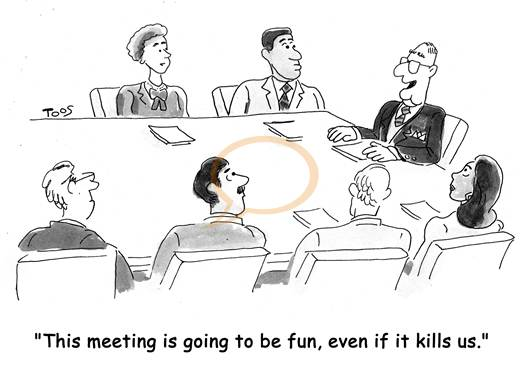Unit 15. MEETINGS AND NEGOTIATIONS
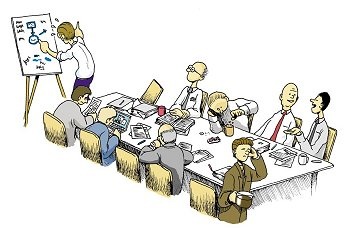
15.1. Listening Development
Assignment 1. Listen to the recording to Unit 15 tackling the language of meetings. Jot down the words and expressions, which are usually used to start the meetings, to interrupt the speakers, to express agreement and disagreement, to finish the meeting. Find the Russian equivalents for them.
Assignment 2. Listen to the recording to Unit 15 again. Fill in the gaps in the script of a meeting at the employment agency ‘Office Angels’.
Meeting A:
Ok everybody thanks . Let’s keep this meeting fairly , really just a couple of things . First of all, as you can see, the news on the book re-launch and, , the office move and, , we will have a little bit of time for any other business.
First of all, the book re-launch. I just everybody that we will be re-launching the fairy tales range with new modern covers and that this is going to happen at the beginning of next month. It is important that we and there has been quite a few…
J o h n. sh… Sean can I just ask you, , Can I ask you about those dates because I thought that this was going to be published the month after next and I understand that everybody has got their dates but I do feel quite strongly that we’re bringing this out too soon.
S e a n. Well, before I comment on that?
C a r r i e. I don’t think we have got any choice at all about it, if the radio programmes are going out at the beginning of next month we’ve got to launch the book at the same time if we’re going to have any sales impact.
Meeting B:
S e a n. is the press release time line … I think the next press release to go out is the sound of silence in meetings. Can you give me an update on that?
A l l. Yeah we sent that out the end of last week, and selling it in today, it’s embargoed until tomorrow, we’ve had a couple of enquiries from the radio…
S e a n. but did you say it had gone out today?
A l l. Yes.
S e a n. … right…
A l l. and ..we’ve had a couple of inquiries as I said. So hopefully that’ll take off tomorrow.
Meeting B (continued):
S e a n. The office move as you know, the plans have been up by the main exit for a week now. I just wanted to see what kind of feed back you have got.
T i m. Yeah Sean I’m sorry but I with the new floor plan. I think it is divisive to separate the secretaries and the assistants out from the editors and Managers, I’d if we could be located in teams.
S e a n. OK. Any ?
W i l l. Yes, I would like to say something, an illustrator came in last week and, I think she is very good and, it would be wise to put her on our books.
S e a n. … uh…
W i l l. I would like to be able to show her drawings and portfolios in the next couple of days. If that’s all right.
A l l. … that sounds good…
S e a n. …yes , of course…..We will look forward to seeing those. Right I think that's but anybody got anything else that they desperately want to raise before we ?
A l l. Nope.
S e a n. OK. We will be having another meeting but there are in the diary so I think the best thing is if I email the date of the next meeting.
15.2. Vocabulary Enrichment
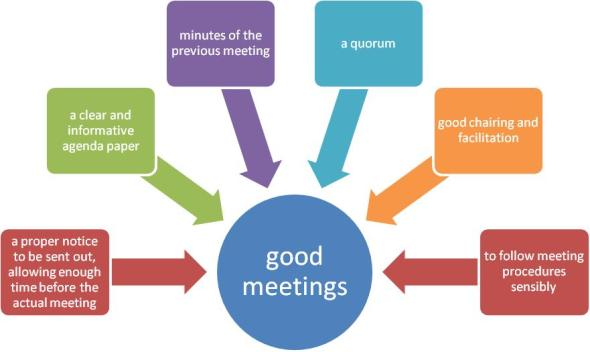
Assignment 1. Which of these expressions are used for the purposes specified in the table below? Complete the table with these expressions.
|
Purpose |
Expressions |
|
Starting a letter |
|
|
Deal with interruptions |
|
|
Keep moving |
|
|
Focus the discussion |
|
|
Check agreement |
|
|
Widen the discussion |
|
|
Summarize |
|
- What's your view on this, Nadine?
- One at a time, please. First Claudia, then Steven.
- Perhaps we could get back to the main point?
- Mike, after we've heard from David. Can we have your views? I know you have some experience of this problem.
- I think we should move on now.
- Is there anything else we should consider?
- Can we come back to this later?
- We need to analyze this in a little more depth.
- Could you just hang on a moment please?
- Let's leave that aside for the moment.
- Can we go round the table to see if everyone agrees?
- Pavel, could you just let Nikolay finish? I'll come back to you in a moment.
- So, basically, what you're saying is ...
- OK, let's go over what we've discussed so far.
- Antonio, this is your field. In a few words, can you tell us what you think?
- I'm not sure that's relevant.
- How do you fee! about this, Bob?
- I think we need to look at this in more detail.
- What other ways are there to approach this?
- Do we all agree on that? Good, that's settled.
Assignment 2. Match phrases from A and B to make sentences we use to close a meeting.
|
|
Assignment 3. Look through the following phrases and determine what for you can use them. Write the purpose next to the group of phrases.
For us, the priorities are ... Our main concern is ... We think the best option would be ... We'd prefer to see/have ... ' We need .... Can you do that? | ... |
What exactly do you need? What do you have in mind? How would you feel about... ? How flexible can you be on ... ? When you say..., what do you mean? Can you be more specific? Let me just check I understand you correctly. | ... |
What sort of quantity are you thinking of? What kind of timescale are we looking at? What sort of figure are we talking about? What kind of guarantee can you give us? We've been quoted a price of... . Can you match that? | ... |
Alternatively, ... Can I suggest another way of moving forward? There are a couple of alternatives we'd like to put forward. Perhaps you would like to try the product on a trial basis? | ... |
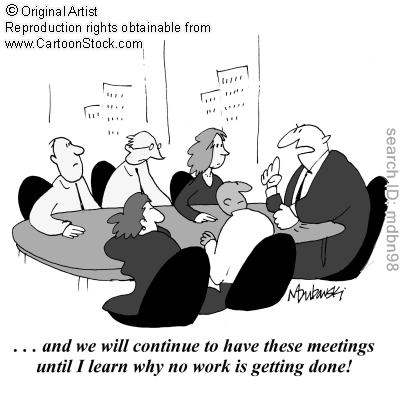
Assignment 4. Read the dialogue below and fill in the gaps with the words in the box.
guarantee match mean minimum priorities
quoted reasonable timescale trust
- OK, let's get down to ....
- What ... do you need?
- For us, the ... are quality and reliability.
- When you say 'reliability', what do you ...?
- Our customers are well-known firms who ... us and come back to us.
- How ... can you be on quantity?
- You can change the quantity up to five working days before the agreed ... date.
- We need a ... order of 500 pieces.
- O ur main ... (= feeling of worry) is that you don't change the basic specifications of your order.
- In terms of delivery, what kind of ... are we looking at?
- We've been ... (= told) a price of €950 per piece for a very similar product.
- Can you ... that (= provide something that is equal)?
- We offer quality at a ... price, not at the cheapest price.
- But what kind of ..... can you give us in relation to your quality?
Assignment 5. Find a word or a phrase that matches the definitions below.
- : a list of the subjects to be discussed at a meeting;
- : a written record of the decisions that people make at a formal meeting;
- : (phrasal verb) do; finish dealing with;
- : one of several things on a list;
- : (phrasal verb) begin.
Assignment 6. Translate the words and phrases in the brackets into English.
We'd (предпочли) an initial (заказ) of, say, 300 pieces.
We'd be (готовы) to offer better (условия) of payment, but only if you increased your order.
When you say 'better terms', what do you (имеете) in (виду)?
We could (принять) that, but only on one (условие).
Would you be (пожелали) to (найти компромисс)?
Yes, that (наверняка) be (возможно).
That (звучит) (резонно).
Let's just take a (воспользуемся моментом) to (проверить / повторить) what we've discussed.
Can we just (пройтись по пунктам) what we've agreed so (до сих пор).
I think that's as far as we can (до чего дойти) at this (этапе).
If you can agree to that, we can (заключить) the (сделку) today.
If you'd just like to (подписать) here.
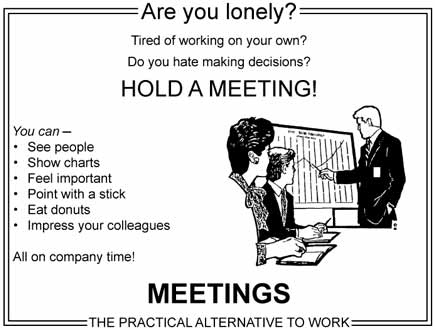
15.3. Reading Improvement
Assignment 1. The process of negotiating is often more accurately called 'bargaining', and there are a number of phases of a negotiation. Read the extract from a meeting and determine the phases of this typical sales negotiation.
The phases are:
(1) Relationship building: getting to know the other person, exchanging information about the two companies, discussing the market, and generally building trust.
(2) Stating needs, exploring initial positions and asking questions. In a commercial negotiation, the supplier explains the product in depth and shows how it brings value to the customer's business.
(3) Bargaining – not just on price, but on a range of linked issues such as quantity, minimum order, discounts, delivery time, service plans and warranties (guarantees), terms of payment, exclusivity in a particular market, the length of the contract, transport costs, arrangements for sharing advertising costs, penalties if clauses in the contract are not respected.
(4) Closing the deal.
S u p p l i e r. OK, let's get down to business. What exactly do you need?
C u s t o m e r. For us, the priorities are quality and reliability.
S u p p l i e r. When you say 'reliability', what do you mean?
C u s t o m e r. I mean delivery. On time, every time. Can you do that?
S u p p l i e r. Yes, we can. Our customers are well-known firms who trust us and come back to us.
C u s t o m e r. OK.
S u p p l i e r. What sort of quantity are you thinking of?
C u s t o m e r. Around 1,000 pieces initially. But that may change. How flexible can you be on quantity?
S u p p l i e r. You can change the quantity up to five working days before the agreed delivery date, and we need a minimum order of 500 pieces. But quantity is not a problem. Our main concern is that you don't change the basic specifications of your order.
C u s t o m e r. Right, I understand. And in terms of delivery, what kind of timescale are we looking at?
S u p p l i e r. Two weeks from your firm order.
C u s t o m e r. OK. Another question. We've been quoted a price of €950 per piece for a very similar product. Can you match that?
S u p p l i e r. We offer quality at a reasonable price, not at the cheapest price. We don't try to compete on price. It's about a relationship between quality and price.
C u s t o m e r. Of course. I see that. But what kind of guarantee can you give us in relation to your quality?
…
S u p p l i e r. ... Yes, our minimum order is 500 pieces.
C u s t o m e r. That's a big risk for us - we'd prefer an initial order of, say, 300 pieces. We can look at further orders later.
S u p p l i e r. That's not really a viable option for us. It's not cost-effective for us to do a production run of just 300 pieces.
C u s t o m e r. I see. And earlier you said that you need 50% pre-payment for first time customers.
S u p p l i e r. That's right.
C u s t o m e r. 50% is a lot of money to pay upfront. I'm sorry, we can't accept that.
S u p p l i e r. We'd be prepared to offer better terms of payment, but only if you increased your order.
C u s t o m e r. When you say 'better terms', what do you have in mind?
S u p p l i e r. Well, if you order 500 pieces, we'll accept 25% payment in advance, with the balance 60 days after delivery. That should help with your cash flow. C u s t o m e r. OK, we could accept that, but only on one condition.
S u p p l i e r. Yes?
C u s t o m e r. That you can make the small customization that we talked about earlier at no extra cost.
S u p p l i e r. I'm not sure about that. I don't have the authority to make that decision by myself.
C u s t o m e r. Well, if you can agree to that, we can close the deal today.
S u p p l i e r. OK. Can you give me a moment to make a call?
C u s t o m e r. Sure.
S u p p l i e r. ... Yes, we can make that customization. No problem. Now, let's just take a moment to review what we've discussed. So, ...
Assignment 2. Look through the dialogue again and find the lines in which:
- The Supplier refuses an offer about the initial order, and gives a reason.
- The Customer responds with a simple phrase to mean he understands the point and moves to another issue.
- Comment whether the sides feel it is necessary to finalize the initial order issue at this point.
- The Customer refuses an offer about the % pre-payment.
- The Supplier responds by linking a concession on this issue to a concession by the Customer on another issue.
- The bargaining and linking of issues continues.
- The pieces of the puzzle only finally fit together.
- The Supplier closes the negotiation by summarizing.
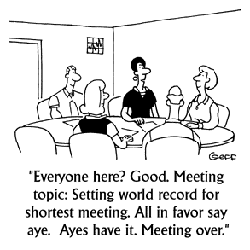
15.4. Writing Enhancement
Assignment 1. Read the extract about the diplomatic language:
Negotiating a difficult issue while trying to keep a good atmosphere. Diplomatic language is about showing respect and allowing the other person to 'save face'. Even if you come from a culture where directness is valued, there will be situations in your future business career where you will need to modify your natural directness. Diplomatic / indirect language shows other people that you're polite, educated and respectful of their opinions and feelings. Compare the 'direct' conversation extract below with its 'softer' version underneath.
|
Version 1: direct C u s t o m e r. This product is very expensive. S u p p l i e r. It's more expensive than the old model. But the quality is much, much better. C u s t o m e r. If we buy this product, will you give us a good discount? S u p p l i e r. What do you mean? C u s t o m e r. We want 5%. S u p p l i e r. That will be difficult. You owe us money on your account. C u s t o m e r. We have a problem with our cash flow. S u p p l i e r. You must pay the money you owe us now. Otherwise a discount on the new product is impossible. |
Version 2: softer, more indirect C u s t o m e r. To be honest, this product seems quite expensive. S u p p l i e r: It's a little more expensive than the old model, that's true. But the quality is significantly better. C u s t o m e r. If we bought this product, would you give us a good discount? S u p p l i e r. What did you have in mind? C u s t o m e r. We were thinking of, say, something around 5%. S u p p l i e r. That won't be easy. I'm just looking at my records here. Actually, you owe us money on your account. C u s t o m e r. Yes, I know. We have a bit of a problem with our cash flow right now. S u p p l i e r. Why don't you pay some of the money you owe us? Then perhaps we could look again at the discount on the new product. |
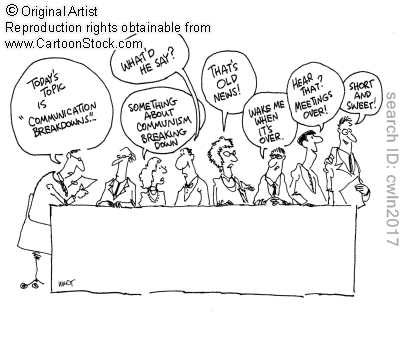
Assignment 2. Make the comments more diplomatic using the words in bracket.
1. There is one thing I want to add. (just / like)
2. That is impossible! (honest / would / very difficult)
3. You’re being too optimistic. (seems / me / that / little)
4. It would be better to use rail transport. (wouldn’t)
5. The line is unprofitable. (actually / not very)
6. We should leave that point until later. (think / might / better)
7. That will be expensive. (might / quite)
8. We will want a larger discount. (would / significantly)
9. There's one thing I want to clarify. (just / like to)
10. Splitting the order into two consignments would be a good idea. (wouldn't / better)
11. I'm unconvinced by this estimate. (not totally)
12. You said that we can have the products on a trial basis. (understood / could)
13. What quantity are you thinking of? (sort of / were)
14. It may be difficult to arrange that, (unfortunately / may / very easy)
15. We're having a lot of problems at our factory, (one or two / issues / right now)
16. We expected a two-year warranty, (honest / expecting)
17. I think that your new range is the same as your old range. (seems / me / more or less)
18. It would be easier to pay more and ship the goods by Air Express. (wouldn't / little more)

15.5. Speaking Reinforcement
Assignment. Do the Quiz Finish the sentence with the correct phrase. Use the Active Vocabulary section. Get ready to compare and discuss your answers in class in pairs or small groups.
MEETING – AGENDA SETTING QUIZ
1. Which sentence might you hear at the beginning of a presentation?
A. Ladies and gentlemen, thank you for arriving today.
B. Ladies and gentlemen, thank you for appearing today.
C. Ladies and gentlemen, thank you for coming today.
D. Ladies and gentlemen, thank you for showing your faces today.
2. The _________ of today’s presentation is to discuss my findings.
A. purpose
B. reason
C. cause
D. points
3. Now, __________ begin by introducing myself.
A. allow me
B. let me
C. I
D. presentation
4. I’d be very happy to __________ you to ask questions at the end of the session.
A. tell
B. invite
C. order
D. request
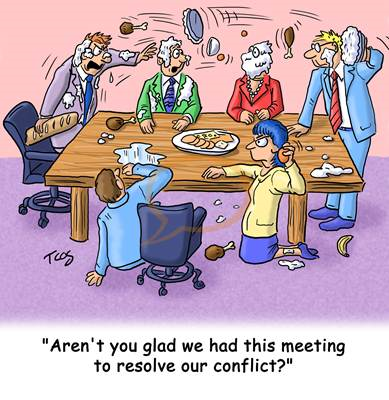
Assignment 2. Prepare to act out a meeting discussing your company’s new travel policy.
